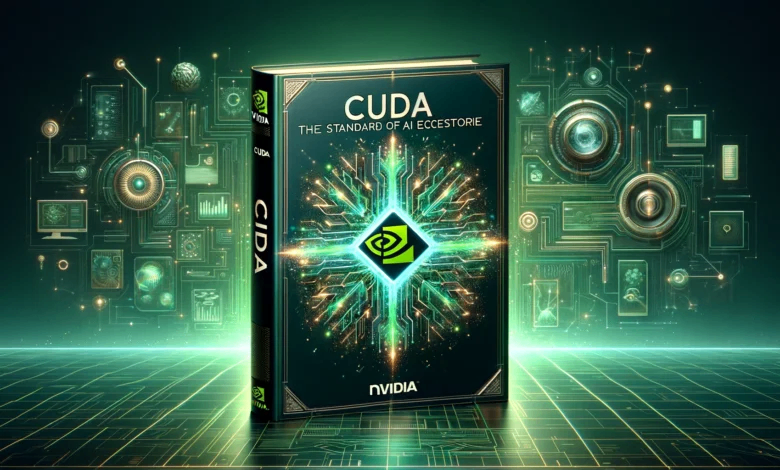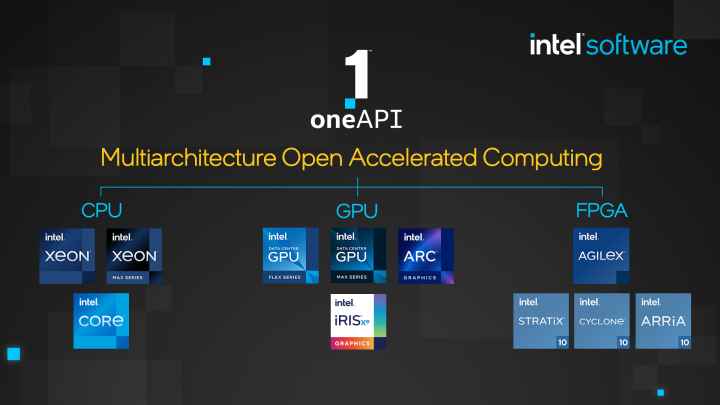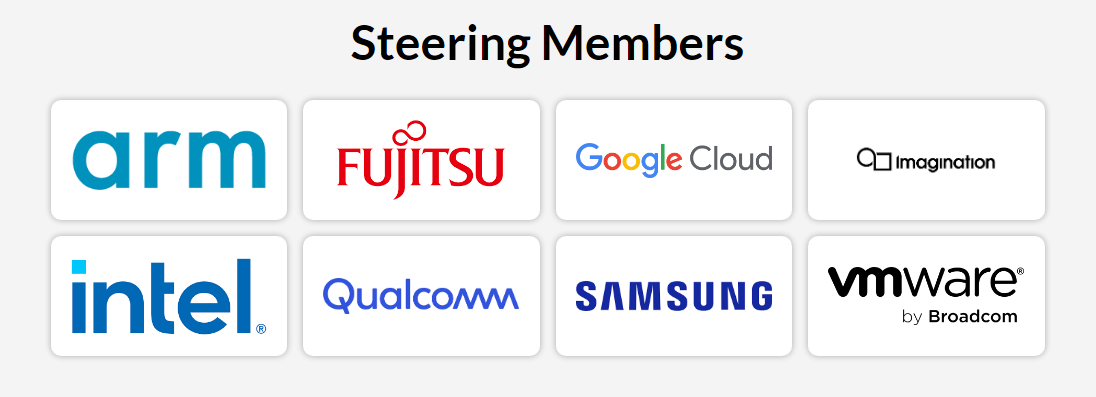Anti-CUDA Alliance: Tech Giants breaking out of AI Dilemma
Tech giants including Qualcomm, Google and Intel are challenging Nvidia's AI monopoly, defeating CUDA with a brand new AI platform based on oneAPI.
Tech giants including Qualcomm, Google and Intel are challenging Nvidia's AI monopoly, defeating CUDA with a brand new AI platform based on oneAPI.
UXL Foundation, a partnership of several companies are intending to develop a set of software and tools to enable computer code to run on various architectures of AI chips and hardware, compelling Nvidia's throne in AI ecosystem.
Intel CEO Pat Gelsinger remarked, "The entire industry hopes to kill CUDA, with companies like Google and OpenAI constantly striving to make AI more open."
"UXL" stems from the concept of "Unified Acceleration," wherein any hardware can harness the efficiency of accelerated computing. Since stepping into AI era, numerous entities have sought to dethrone Nvidia's leadership, with UXL being just one of them. Data shows that as of now, more than 93 projects have received over $4 billion funds.
Industry Certified: Nvidia CUDA
Since the launch of CUDA in 2006, it has been around for 18 years and becoming matured significantly over its 15-year practice, leading to the habit of building code around CUDA. Statistics show that over 4 million developers worldwide rely on CUDA to build AI and related applications. Obviously, Nvidia's chips have become the blood of AI developments nowadays.
Let's take a closer look on CUDA, it is a programming model for parallel computing platforms developed by Nvidia for accelerating GPU computing. Its excellent performance and synergistic effects enable users to fully utilize chips' computing power. Initially used mainly in scientific computing scenarios such as climate simulation, physics simulation, and bioinformatics research, CUDA did not gain much traction in the market. However, H100 and H200 chips later officially marked the beginning of Nvidia's AI empire, capturing up to 90% of the market share.

In the opening event of GTC 2024, NVIDIA CEO Jensen Huang shared the history of his company. In 2014, Huang first emphasized the importance of machine learning, and introduced the concept of CUDA. While people still considered NVIDIA primarily as a manufacturer of gaming graphics cards, it had already been standing at the forefront of the AI revolution.
By the "AI application year" of 2024, CUDA had become even more versatile. NVIDIA's AI computing technology seamlessly connected to people's daily lives, ranging from underlying technologies such as llms and conversational AI to applications like autonomous driving, humanoid robots, AI phones, AI PCs, etc.
The large demand of NVIDIA's GPUs drew attention from other tech giants. Firstly, NVIDIA's chips were expensive, and the company had absolute pricing power. Manufacturers hoarding GPUs had to pay substantial amounts to NVIDIA, which threatened their own profitability. Additionally, NVIDIA continued to expand into other areas relying on GPU computing resources, leading to inevitable business confrontations.
In 2023, several startups aimed to change this situation, but NVIDIA's solid foundation in the AI field wasn't easily shaken. Overcoming significant inertia and dependence would be necessary to alter the current state of affairs.
UXL‘s Sharp Weapon: Intel oneAPI
According to the report, the UXL Foundation believes that Intel's oneAPI is the only ideal choice for this initiative。

oneAPI is Intel's unified programming model and software development framework, which enables developers to achieve cross-hardware architecture development (such as GPU, AI accelerators, and FPGA, etc.) without significant code modifications, making it more open than CUDA and offering greater portability when switching between architectures.
For UXL, they are intending to achieve broader cross-architecture and cross-platform support on this basis, decoupling chip hardware from software, lowering the technical barriers for developers, streamlining development processes, improving efficiency, and accelerating innovation and application of AI technology.
Vinesh Sukumar, Director of Artificial Intelligence and Machine Learning at Qualcomm, said: "What we're actually doing is showing developers how to migrate away from the NVIDIA platform, and UXL's ultimate goal is to provide long-term support for NVIDIA's hardware and CUDA ecosystem code."
Bill Margo, Director of High-Performance Computing and Chief Technology Expert at Google, believes: "Specifically, what we need to do in the machine learning framework space is to create an open ecosystem and improve hardware productivity and compatibility."

Currently, oneAPI is available, but it has not yet reached the optimization level of CUDA. Next, UXL will create a standard AI programming model based on this technology. In addition to the initial participating companies, the UXL Foundation has also attracted several others, including Amazon AWS, Microsoft Azure, and multiple chip manufacturers.
According to the Technical Steering Committee of the UXL Foundation, it is expected to finalize its technical specifications in the first half of 2024 and refine the technical details by the end of the year.
The UXL Foundation plans to allocate resources to address the most urgent computational problems dominated by a few chip vendors, such as the latest AI and high-performance computing applications. These initial plans are part of the organization's efforts to attract developers to its own platform. In the long run, the ultimate goal of UXL is to support NVIDIA hardware and CUDA ecosystem code.
Regarding this industry trend, NVIDIA executive Ian Buck stated, "The world is undoubtedly accelerating. The goal of accelerated computing will advance the practical applications of AI and accelerated computing today."
·Original
Disclaimer: The views in this article are from the original Creator and do not represent the views or position of Hawk Insight. The content of the article is for reference, communication and learning only, and does not constitute investment advice. If it involves copyright issues, please contact us for deletion.